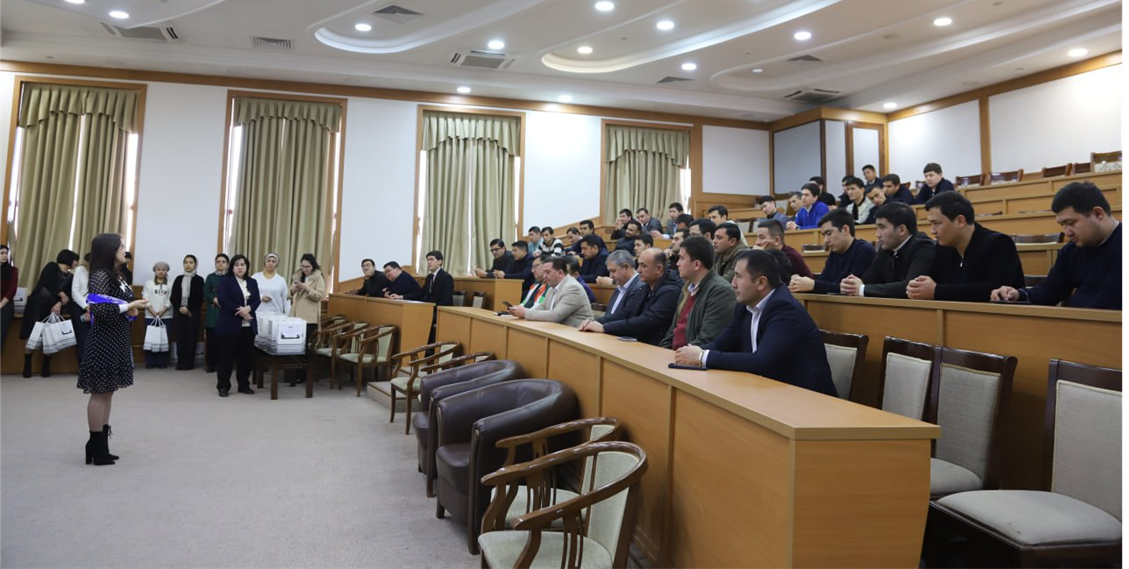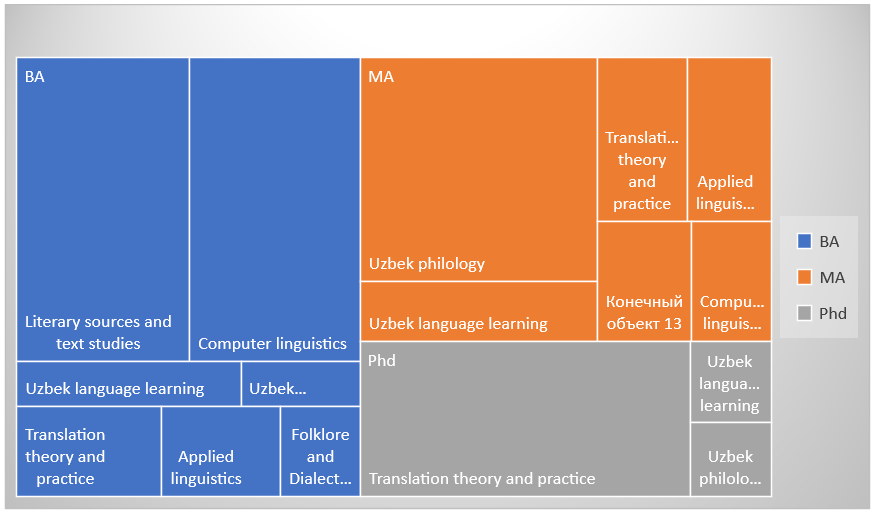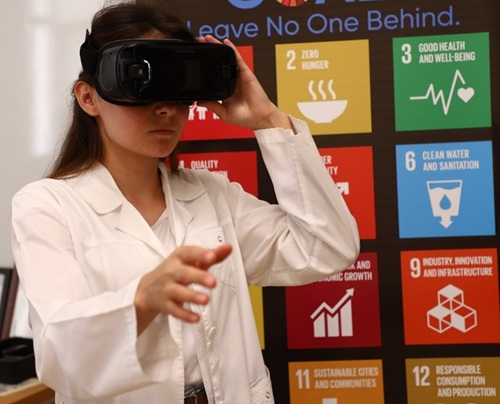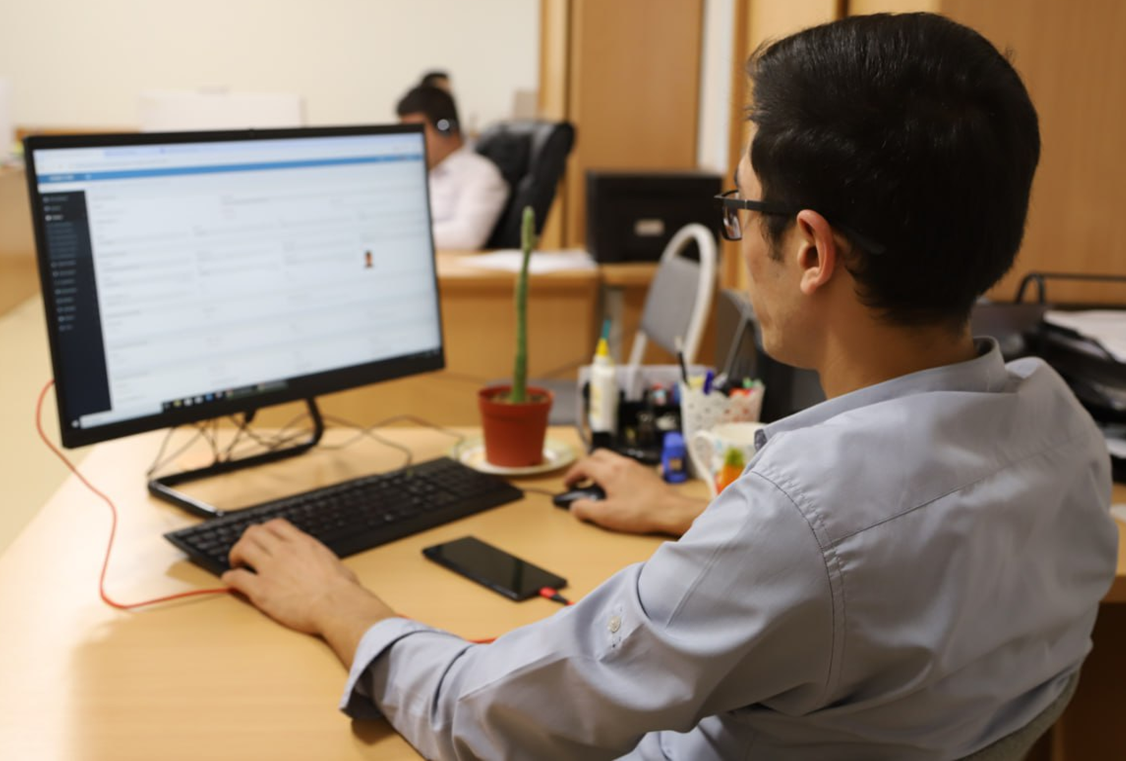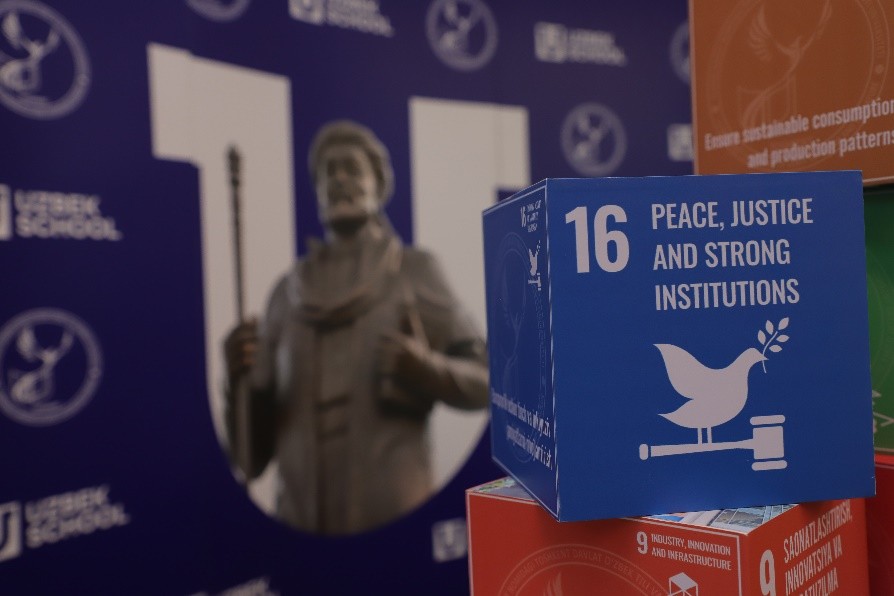
Interdisciplinary Research Awards
1. Karimov Bahodir Nurmetovich – Head of the Department of Literary Theory and Contemporary Literary Process, Professor. He was awarded the title of "Honored Mentor of Youth in Uzbekistan" for reflecting the ideas of protecting children's rights and creating necessary conditions for their quality education in children's literature, according to the Presidential Decree of the Republic of Uzbekistan dated August 26, 2020.
2. Sirojiddinov Shuhrat Samariddinovich – Rector of Alisher Navoi Tashkent State University of Uzbek Language and Literature. He was awarded the title of "Honored Mentor of Youth in Uzbekistan" for his scientific work in the fields of text studies and literary source studies, as well as his efforts in training qualified specialists in these areas, according to the Presidential Decree of the Republic of Uzbekistan dated August 25, 2021.
3. Xolmanova Zulxumor Turdiyevna – Head of the Department of Uzbek Linguistics, Professor. She was awarded the title of "Honored Mentor of Youth in Uzbekistan" for her scientific work in the fields of vocabulary studies, history of the Uzbek language, and classical literature research, as well as her activities in training specialists in these areas, according to the Presidential Decree of the Republic of Uzbekistan dated March 5, 2022.
4. Yusupova Dilnavoz Rahmonovna – Professor of the Department of History of Uzbek Literature. She was awarded the "Friendship" Order for her contribution to the development of modern pedagogy and her scientific work in the fields of classical literature research and translation studies, according to the Presidential Decree of the Republic of Uzbekistan dated March 5, 2022.
5. Dadaboyev Hamidulla Aripovich – Professor of the Department of Theoretical and Applied Linguistics. He was awarded the title of "Honored Mentor of Youth in Uzbekistan" for his scientific activities in the fields of history of the Uzbek language and military terminology, according to the Presidential Decree of the Republic of Uzbekistan dated August 27, 2023.
6. Qurbonova Munavvara Abdujabborovna – Professor of the Department of Uzbek Linguistics. She was awarded the "Shuhrat" medal for her effective work in creating relevant literature for children's speech and inclusive education, according to the Presidential Decree of the Republic of Uzbekistan dated August 25, 2024.
7. Jabborov Nurboy Abdulhakimovich – Head of the Department of History of Uzbek Literature, Professor. He was awarded the "Friendship" Order for his effective work in strengthening text studies, literary source studies, and foreign literary relations, according to the Presidential Decree of the Republic of Uzbekistan dated August 25, 2024.
8. Ashirboyev Samixon – Head of the Department of Folklore Studies and Dialectology, Professor. He was awarded the "Shuhrat" medal for his effective work in area linguistics and dialect studies, according to the Presidential Decree of the Republic of Uzbekistan dated August 25, 2024.

